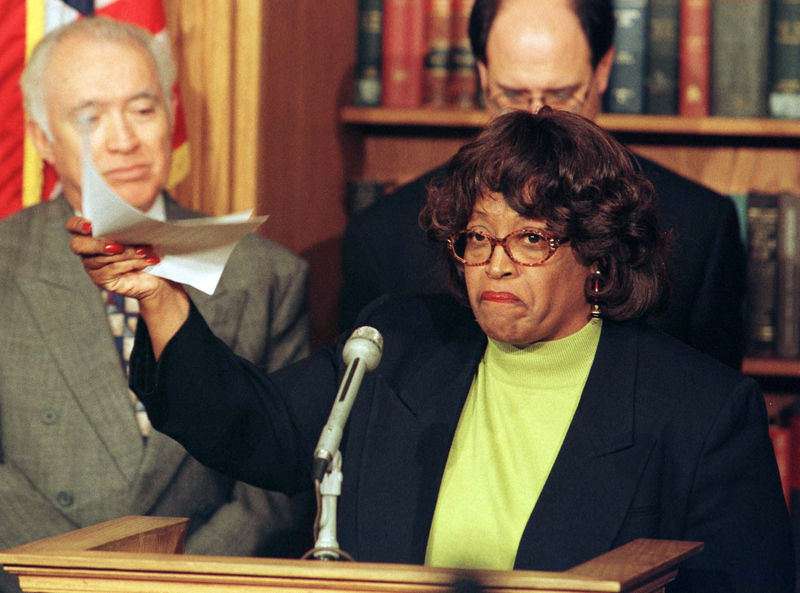(Reuters) - Former U.S. Representative Corrine Brown of Florida was found guilty in federal court on Thursday of fraud for helping to raise $800,000 for a bogus charity and using the funds for concerts and golf, U.S. Justice Department officials said.
Brown, 70, was convicted on 18 counts of participating in a conspiracy involving a fraudulent education charity, concealing material facts required on financial disclosure forms and filing false tax returns, the Justice Department said in a statement.
“Former Congresswoman Brown chose greed and personal gain over the sacred trust given to her by the community that she served for many years,” acting U.S. Attorney Stephen Muldrow said after a jury reached a verdict in Jacksonville.
Brown, a Democrat who served 24 years in Congress, lost her re-election bid last year after being indicted.
Her sentencing date has not been set. James Smith, her attorney, told reporters outside the federal courthouse in Jacksonville that he would seek a new trial.
"She maintains her innocence," he said. "This is just part one of a very long process."
Prosecutors said Brown participated from 2012 to 2016 in a conspiracy and fraud scheme involving the One Door for Education fund, along with her chief-of-staff Elias "Ronnie" Simmons and the charity's president, Carla Wiley.
The group solicited more than $800,000 in charitable donations that they said would be used to pay for college scholarships, computers for schools and other charitable causes, prosecutors said.
The money instead was spent by the three for their own personal use, including for a golf tournament honoring Brown and for luxury box seats at a Beyonce concert. The charity awarded only two scholarships totaling $1,200 to college students, according to trial evidence.
Simmons and Wiley previously pleaded guilty to charges stemming from their involvement in the scheme.
Brown, known as a talkative politician who does not shy away from the media, stayed silent as she left the courthouse on Thursday.

Brown was elected to Congress in 1992 as one of the first three black members of Florida's congressional delegation since the Reconstruction period following the Civil War.